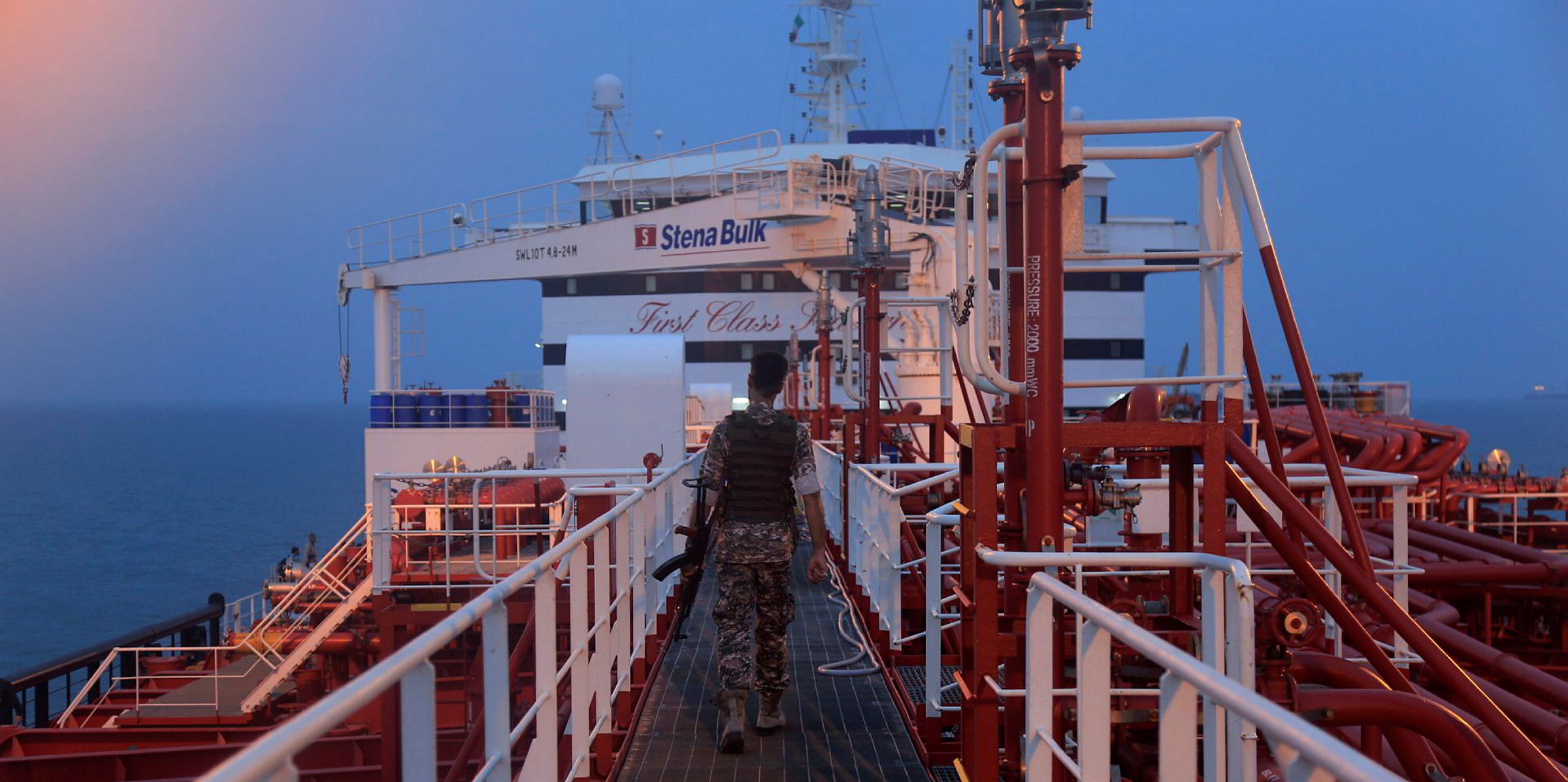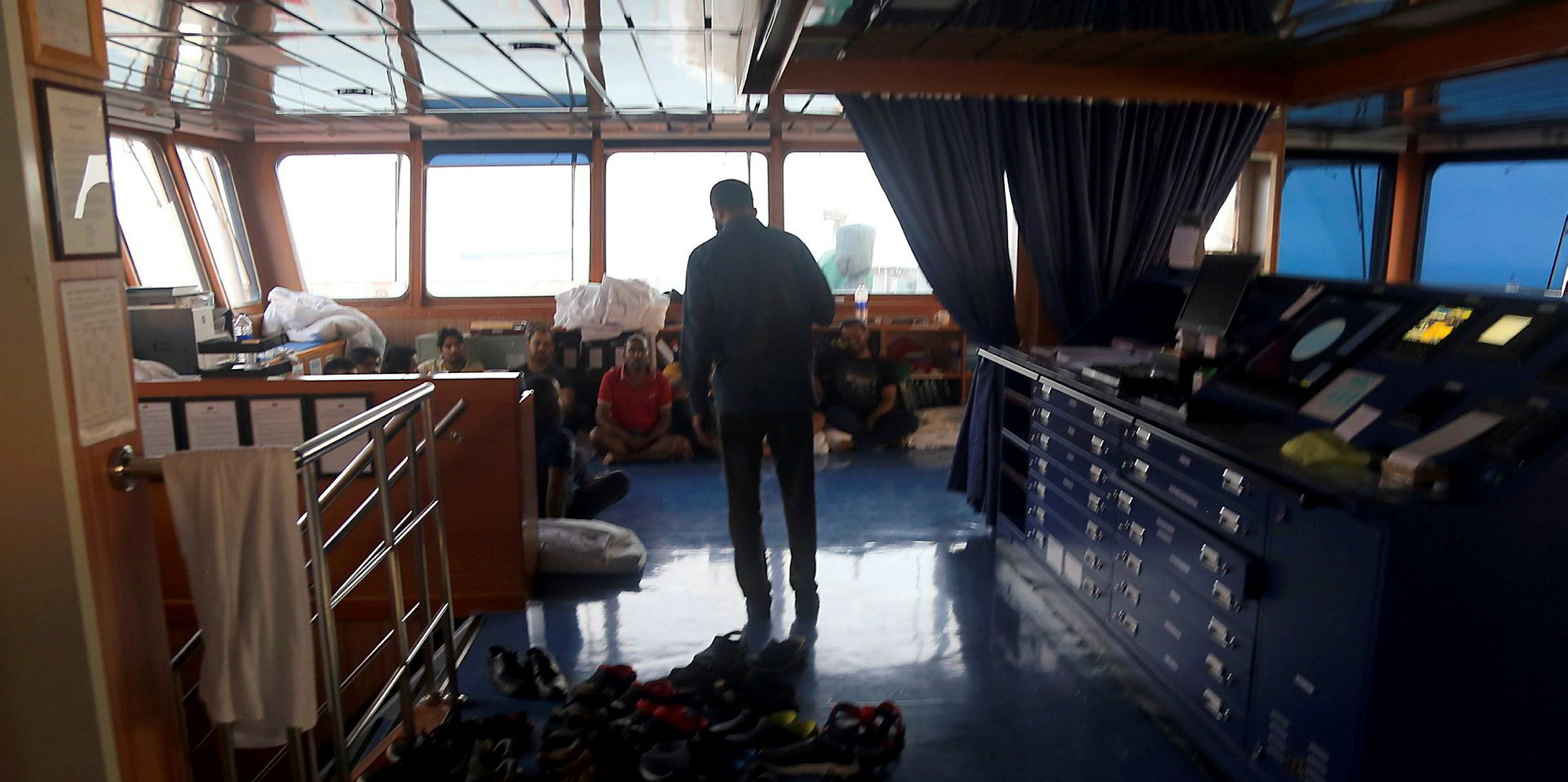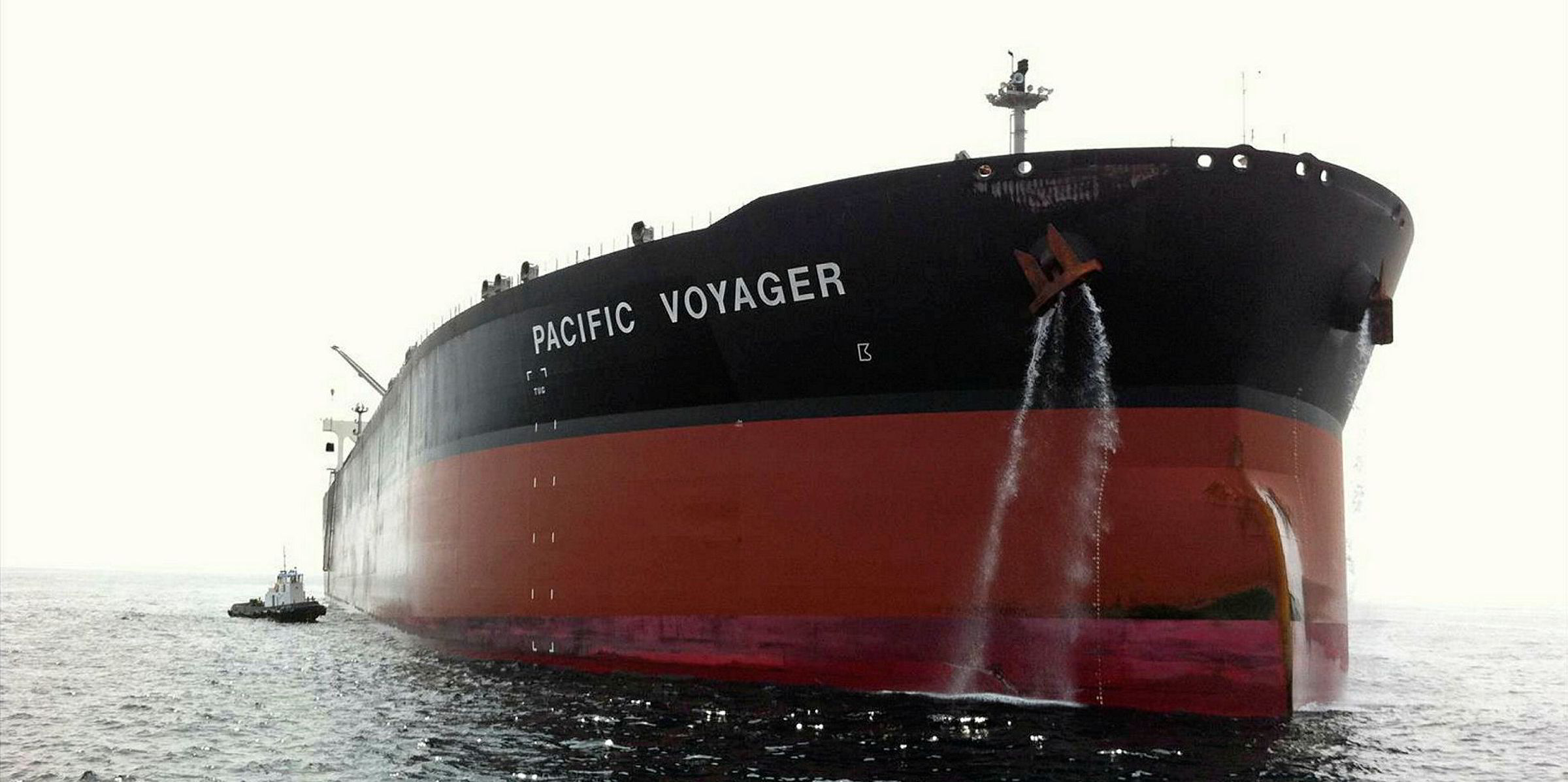The Swedish Club is in line to be hit by insurance claims linked to Iran's move to seize a Stena Bulk tanker on Friday.
It has emerged that the Gothenburg-based mutual provides war risk insurance and protection and indemnity cover to the 50,000-dwt Stena Impero (built 2018).
The Swedish Club is also acting as claims lead for hull and machinery cover with Norway’s Gard also listed among its marine insurers.
Sweden’s Stena Group, which controls the Stena Impero, also has its headquarters in Gothenburg.
War risk insurance replaces the main line P&I and hull and machinery cover when a vessel is subject to terrorism or piracy attacks in a designated high-risk area.
However, for now claims resulting from the Stena Impero hijacking look like they may be limited.
It appears there was little physical damage to the tanker or crew when it was seized by the Iranian Revolutionary Guard on Friday.
However, an extended detention of the ship in Iran could prove costly.
War risk insurers would normally pay out for a total loss if a ship is unable to leave a port for a period of six months.
Scandinavia war risk cover providers have found themselves worst hit by the spate of attacks on tankers linked to Iran in the Middle East Gulf.
The Norwegian Shipowners' Mutual War Risks Insurance Association (DNK) provided cover for the 110,000-dwt tanker Front Altair (built 2016), which was seriously damaged by an explosive device in a separate recent attack in the region.
The higher-risk profile of the Middle East Gulf has already trebled war risk rates for UK-flag ships, which are being targeted by Iran following the earlier arrest of the 300,000-dwt Grace 1 (built 1997) by the UK off Gibraltar, paying out the most for cover.
However, soaring war risk costs often do not last long.
“When something like this happens, the market agrees to push rates right up. But when underwriters see the opportunity to win new business, then they soon start to lower rates,” one broker observed.
One lawyer suggested that based on past experience there could be cost implications for tanker hull and machinery insurance costs as well as war risk premiums.
He added that the terms of marine insurance cover could also change amid what he described as a “cocktail of instability”.
“The rising tensions as a result of these incidents will continue to have a knock on effect on global fuel prices and insurance premiums," said Jonathan Moss, head of transport and marine at law firm DWF.
"The global insurance markets are accustomed to factoring geopolitical uncertainty into pricing models, nevertheless this geopolitical fallout has not been seen since 2003."
That year, he said, rates for war risk cover in the Middle East Gulf jumped because of political instability in the region.
"In particular, global marine insurers are already closely monitoring the current situation and employ complex risk models," he said.
"Given the hostility escalating, underwriters will also be closely scrutinising voyages on a case-by-case basis with premium increases covering vessels in the region a near certainty.
"Ultimately, this uncertainty in the Gulf region is likely to lead insurers to raise premiums, renegotiate terms of cover and introduce riders to marine and energy contracts of insurance and reinsurance, in the face of a cocktail of instability in the region."
13 May: Four tankers including Bahri and Thome ships targeted in attacks off Fujairah
14 May: US claims Iran used mines, which Iran denies
13 June: Two tankers operated by Frontline and BSM hit by torpedoes or mines off Iran
15 June: Front Altair towed from Iranian waters as crew leave Iran
19 June: Insurance premiums spike as UAE declared high-risk area
4 July: UK marines board 301,000-dwt Grace 1 (built 1997) in Gibraltar on suspicion it had shipped Iranian crude to Syria, sparking fury in Iran
6 July: Tanker markets spooked amid reports a UK-flagged VLCC, MOL’s 302,290-dwt Pacific Voyager (built 2009), had been targeted by Iranian forces
11 July: British warship fends off an attempt by Iranian vessels to seize a BP tanker
17 July: Iran’s supreme leader Ayatollah Ali Khamenei slams Britain for “piracy” and says the Country “would not leave this wickedness unanswered”
17 July: Reports surface Iran may have seized a small oil tanker, Riah, travelling through the Strait of Hormuz
19 July: Gibraltar's Supreme Court clears the way for the UK territory to hold the VLCC Grace 1 for another 30 days





